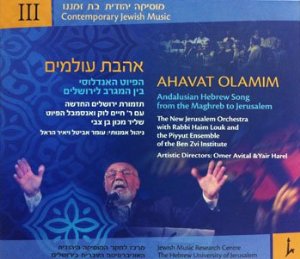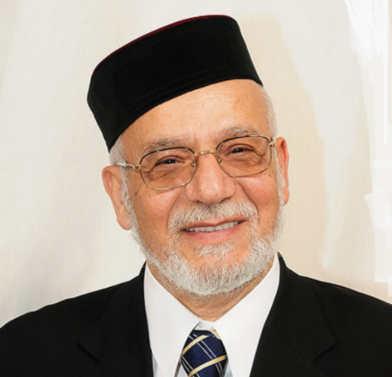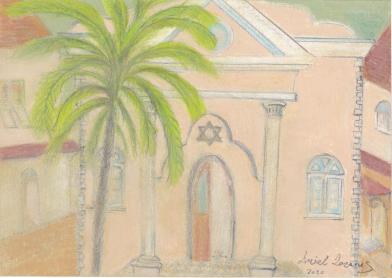2012
B. Dialogue: Le-Daber be-Etzem ha-Nehara, Tzur She'eheyyani
At the focal point of the second section of Ahavat 'olamim stands Tzur she-heheyyani, a piyyut (maqam Nahawand sha'abi) by R. David Buzaglo, the leading paytan of moroccan Jewry in the latter half of the 20th century. This piyyut was based on the Arabic song Ayli hayani, which contains a hint of the sha'abi (popular) Moroccan style. It was written by Moroccan singer and composer Mohamed Fouiteh (d. 1996), considered one of the founders of modern, popular Moroccan music. The pentatonic scale prominent in this melody recalls the Berber style, characteristic of the mountainous region of Motocco and western Algeria.
A rhythmic intensification develops during the course of this composition, leading to a jazz-style dialogue expressed by the tenor saxophone solo of Greg Tardy, a guest of the orchestra on the Ahavat 'olamim project. Before the piyyut, Moroccan-born Israeli poet Erez Bitton reads his poem "Le-daber be-etzem ha-nehara," subtitled "Shaharit le'Rabi David Buzaglo, mi'gdolei paytanei yahadut Morocco" [Morning prayer for R. David Buzaglo, one of the greatest paytanim of the Moroccan Jewery] (from Tsipor bein yabashot [ A Bird between Lands], Ha'kibbutz Ha'meuhad 1990). In his poem, Bitton dialogues with R. Buzaglo, who like the poet, lost his sight but did not stop writing poetry. He calls to the rabbi: "Come out from the corner to the stage of all stages." Ahavat 'olamim seems to serve as a fulfillment of Bitton's wish.






